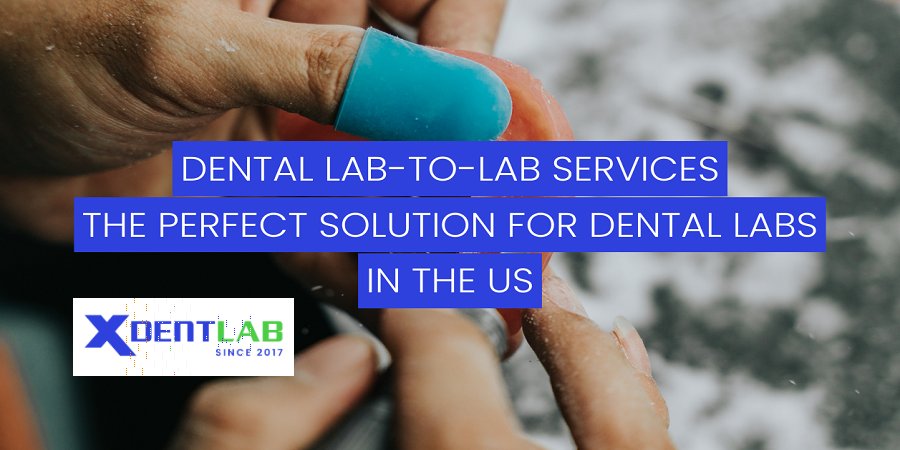
Lab to Lab Services district 10 Ho Chi Minh dentallabvietnam.com play a crucial role in the medical and scientific community, streamlining the processes of sample transfer, testing, and diagnostics. Essentially, these services facilitate the movement of biological specimens or diagnostic materials from one laboratory to another, ensuring that samples are analyzed using the most appropriate methodologies available. This system is particularly vital in urban areas such as District 10 in Ho Chi Minh City, where numerous laboratories may specialize in different types of analyses.
Overview of Lab to Lab Services
The process typically involves the collection of samples, which are then securely transported to a receiving lab that specializes in specific tests. This transfer can encompass a wide range of services, including but not limited to, clinical testing, molecular analysis, and pathology services. The significance of lab to lab services is underscored by their ability to enhance the efficiency of diagnostics. By utilizing the expertise and equipment specialized within different laboratories, healthcare providers can quickly access accurate results, hence improving overall patient care.
Another key feature of lab to lab services is the promotion of collaboration between facilities. When laboratories work together, they can share resources, knowledge, and technology, Lab to Lab Services ultimately leading to better research outcomes and innovative approaches to diagnostic challenges. Goals of these services include not just improved accuracy in results but also expanding the capacity of healthcare systems, thereby enabling them to meet increasing demand for diagnostic services.
Moreover, larger-scale operations and the integration of advanced technologies in lab to lab services are becoming a standard, enhancing the quality of care provided to patients. High precision in testing, rapid turnaround times, and accessibility to specialized services are pivotal outcomes of these collaborative efforts. As the systems evolve, lab to lab services continue to significantly impact the future of healthcare delivery and scientific research.
Key Players in District 10’s Lab to Lab Ecosystem
District 10, Ho Chi Minh City, is home to a diverse array of laboratories that play a crucial role in the local healthcare infrastructure. These facilities provide essential testing and medical services, significantly enhancing the lab to lab services available in the region. Among the key players are specialized diagnostic laboratories, research institutes, and hospitals that offer laboratory services, each bringing unique expertise to the ecosystem.
One prominent example is the Ho Chi Minh City Hospital of Medicine and Pharmacy. This institution not only serves as a leading educational facility but also operates a comprehensive laboratory that focuses on biochemical, hematological, and microbiological testing. The hospital’s commitment to research and innovation allows it to engage in extensive collaborations with other labs, ensuring a fluid exchange of information and resources. Such partnerships fortify the lab to lab services framework, facilitating timely and accurate patient diagnostics.
Another essential contributor to the lab to lab network is the Pathology and Genetics Laboratory of District 10. Renowned for its advanced molecular testing capabilities, this laboratory specializes in genetic profiling and oncological diagnostics. By collaborating with other medical entities, it plays a pivotal role in tailoring personalized treatment plans for patients, thus improving treatment outcomes through precision medicine.
In addition to these, smaller diagnostic centers like the Phu Nhuan Laboratory contribute to this collaborative ecosystem by offering niche testing services that complement those of larger institutions. Their ability to quickly adapt to local health needs further strengthens the effectiveness of lab to lab services.
Testimonials from healthcare providers and patients underscore the reliability and impact of these collaborations. Successful case studies have demonstrated that when laboratories work together, they significantly enhance the diagnostic capabilities available to healthcare professionals, ultimately leading to improved patient care and health outcomes in District 10.
Related articles: Vietnam dental laboratories district 4 Ho Chi Minh
Benefits and Challenges of Lab to Lab Services
Lab to lab services play a crucial role in the healthcare ecosystem, particularly in urban settings like District 10, Ho Chi Minh City. One of the main benefits of such services is the streamlined workflows they offer. By enabling laboratories to share resources and samples seamlessly, healthcare providers can enhance their operational efficiency. This interconnectedness reduces delays in processing and enhances the overall productivity of healthcare facilities.
Another significant advantage of lab to lab services is the accelerated turnaround times for test results. With specialized laboratories efficiently handling specific tests, patient diagnosis and treatment can commence sooner. This rapid access to results not only improves patient care but also empowers healthcare professionals in making informed decisions promptly, which is critical in acute medical scenarios.
However, while the benefits are noteworthy, there are challenges that accompany lab to lab services. Logistical issues can often arise, particularly regarding the transportation of samples. Vietnam dental lab Ensuring that specimens are safely and promptly delivered while maintaining their integrity is of utmost importance. Additionally, communication barriers between different laboratory teams may lead to misunderstandings or errors, potentially compromising patient safety.
Moreover, maintaining quality control during the transfer of samples poses another challenge. Variability in procedures between laboratories may affect the reliability of test results. To mitigate these concerns, laboratories must invest in training staff members and implementing standardized protocols. Technology can also offer solutions, such as real-time tracking systems to monitor sample transit and communication platforms to facilitate quicker interactions between staff. Continuous improvement is essential for maximizing the benefits of lab to lab services while addressing the inherent challenges, ultimately ensuring high-quality patient care in District 10.